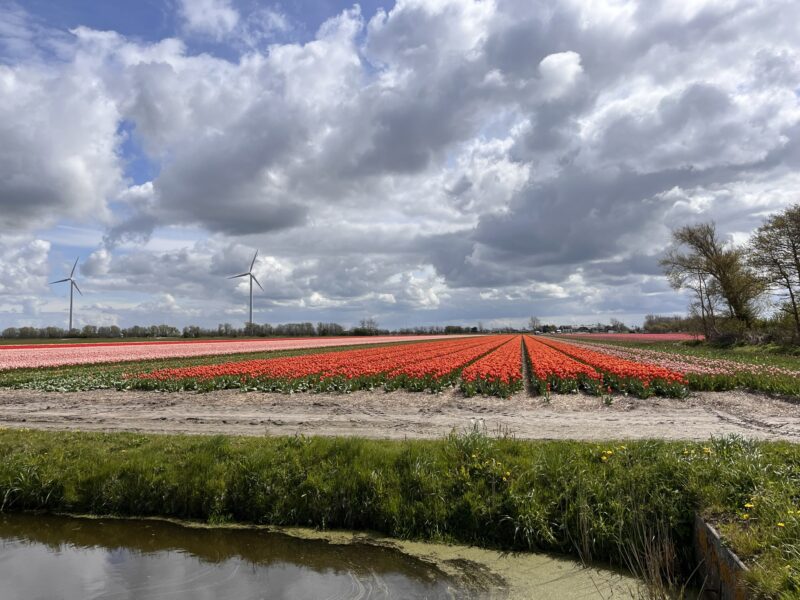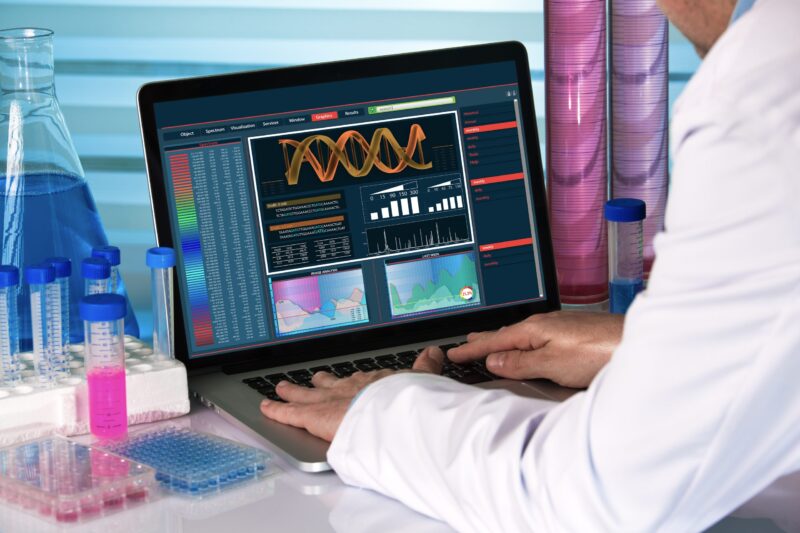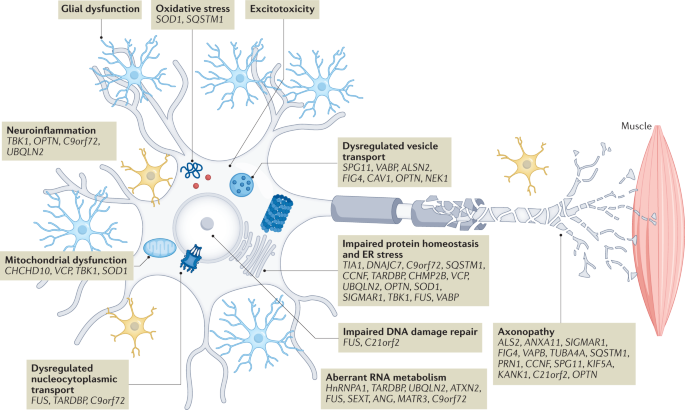
Peter
Forum Replies Created
-
Interesting article in the newsfeed about electrotherapy and I wonder whether the stimulation itself has an effect or whether it is other processes? Stimulation with a magnetic field, which is being tested in Dresden, also pursues a similar objective. This test was carried out with the SOD1 model, so the effective conclusions are limited to all ALS patients. Testing the method on the cell model could be of interest if several hundred different cells from ALS patients were included. Is there a discussion forum here?
https://alsnewstoday.com/news/noninvasive-spinal-stimulation-extends-survival-als-mice-study/
-
Peter
MemberJuly 12, 2025 at 6:19 am in reply to: Do you ever feel “survivor’s guilt” about being a slow progressor?No, I think that patients with a slower progression should take more responsibility for the whole group of people living with ALS, as they have more time to pursue projects and don’t have to deal with the disease on a daily basis.
-
Hi and best regards from Switzerland, I attended the BIOGEN study, BIIB105 in the Netherlands at the UMC, Utrecht for 1.5 years. This study was stopped in April 2024 as the ASO did not show any positiv results. I am a ATXN2 31/29 carrier and at the UMC they told me, that the have out of a dadabase of over 10’000 ALS persons (ProjectMine – https://projectmine.com/), 10 with the ATXN2 31/29 gen repeat mutations, and that all show a ALS. I expect a publication on this subject within the next monthes, as a everage living span was indicated with 7.5 years after diagnose.
projectmine.com
To understand the genetic basis of ALS and to ultimately find a cure for this devastating, fatal neuromuscular disease, Project MinE aims to analyse the DNA of at least 15,000 ALS patients and 7,500 controls. The resulting 22,500 DNA profiles … Continue reading
-
Peter
MemberMay 2, 2025 at 6:25 am in reply to: When did you first know you were a slow progressor?Hi Dagmar, I had my first symptoms in February 2018 while skiing and was
diagnosed in May 2019. At this time my docotre spoke about a possible slow progession. Since my diagnosis, I
have tried many things to slow down the progression of ALS.
Unfortunately without success. Today I take Rilutec and a lot of supplements. Participation in a BIOGEN study in
Utrecht, the Netherlands, did not bring any results either. However, I
now know that I have a gene repeat expansion and that this has only been
detected in about 10 people (out of over 12,000 data sets). Mentally,
I’m doing well and I try to start each day by giving it a chance to be
the best day of my life. Not always – but it works better and better. I
live with my wife close to Zurich / Switzerland. In 2021 we moved from
our house to a apartment, which is barrier-free and ideal for me. We are stil traveling a lot and we see friends – hard to tell you my best place :). I try
to support the Swiss ALS Foundation, started the #step4ALS challenge and
try to get involved in the association, which unfortunately doesn’t
work well. They dont allow outside opinions and do not manage to involve
members in its work. As an ALS patient, you are sitting on a timeline
and you really want to make a difference so that a treatment can be
found. I think that slow progressors can make an important contribution
here, because we have more time. Sincerely, Peter -
Hi, I got further information about my ATXN2 (31/29) gen repeat expansion: Having it on both sides means, that you will get ALS – database research showed so fare – does anybody has other information’s from other databases?
-
Peter
MemberJuly 23, 2024 at 4:29 pm in reply to: Have you made plans for any vacations this summer? How is preparing for trips or vacations different from your pre-ALS days? -
Peter
MemberJune 12, 2024 at 5:17 am in reply to: Why is there almost no research on neurotoxins as a possible cause?May I put forward a hypothesis; if we were to expose cell lines that have not “yet” developed ALS to toxic substances to observe whether these lead to a TDP-43 change in development, this could be one approach. Is anyone already doing research here?
-
Hi Dagmar, Ferrer published the results of Edavarone trial. Ferrer reports that Phase III ADORE (EudraCT 2020-003376-40 / NCT05178810) clinical trial of oral Edaravone formulation (FAB122) in amyotrophic lateral sclerosis (ALS) patients did not meet primary or key secondary endpoints.
https://www.ferrer.com/en/results-study-ADORE-ALS
As we speak about Edavarone, I would like to know what is the difference about Radicave and ADORE as it is as well Edavarone. Radicava holds 105mg / ADORE used 100mg. I have just seen a statement from the producer of Radicava (https://www.mt-pharma-america.com/media/news/press-releases/2024/01/17/mitsubishi-tanabe-pharma-america-inc-mtpa-statement-on-ferrers-phase-3-adore-clinical-trial-of-fnp122-fab122).
I think the patients should get more details about it. What is your opinion?
-
Dear all, I got the feedback from the study sponsor, that Chalation Therapy will not be possible within the study protocole as the therapy is not approved for ALS. I will step back from the idea making a Chelatherapy. Regards, Peter
-
Peter
MemberNovember 17, 2023 at 6:28 am in reply to: FDA approves tofersen, now Qalsody, as treatment for SOD1-ALSHello, does anybody knows, if BIOGEN is starting / planNing a study with Qalsody for people with the SOD1 mutation without having a diagnosed ALS, as a prevention therapy? Or do you know more about using Qalsody as a ALS blocker? Thanks and best regards, Peter
-
After my diagnosis 2019, I tested my blood for heavy metals and found lead, palladium, thallium, mercury and arsenic levels to be too high. I subsequently did various detoxifications including 5 x blood washing with inuspheresis. The blood values have subsequently decreased and this spring I did a urine test, which compares the heavy metal content in the basic urine and in the DMSA urine. Interestingly, the levels worsened between the spring measurement and the measurement this August, even though I have implemented elimination measures and take many supportive supplements. I have discussed with my doctor that a chelation infusion may be the next therapy to get the heavy metals out of the body. Since ALS can have 60% genetic and 40% environmental influence in triggering it, it is certainly good to get the heavy metals out of the system. Has anyone done tests before and after?
-
Peter
MemberSeptember 13, 2023 at 10:13 am in reply to: What do you think of this new form of Radicava?Hello dear All
I think it is great that the active ingredient is now available in a form that is easier to apply. What I am still missing is, that the description of the efficacy is limited to a small patient group and otherwise the agent is not supposed to have any effect in a large ALS patient group. Since I already received my ALS diagnosis in 2019 (= over 2 years) and suffer from a flail-leg version of ALS that puts me at “0” points (Question with climbing stairs), the agent is not effective in my case, according to the 2017 study. Since 2022 I have the information, that I am carring a ATXN2 gen repeat expension. A review in 2023 reported; the evidence suggests that free radicals play a crucial role in the progression of ALS. Free radicals can harm the central nervous system (CNS) by limited ability to scavenge
free radicals and weak capability for regeneration. Furthermore, reactive oxygen species (ROS) cause genetic mutations by changing the actions of some enzymes, such as superoxide dismutase and glutamate synthetase. The literature supports the oxidative stress hypothesis by concluding that the CNS tissue of ALS patients contained a higher level of 3-nitrotyrosine (3-NT), a biomarker for oxidative stress.
In this context I miss in the evaluation of Edavarone to what extent gene disposition plays a role, patients with SOD1 and SQSTM1 mutations are more at risk for oxidative stress (https://www.nature.com/articles/s41573-022-00612-2/figures/1). Does anyone know if relevant research projects are ongoing on this topic? I myself take a lot of supplements which are supposed to reduce oxidative stress and bind free radicals. Thanks for any links or infos on this subject.I would like to avoid taking a drug that does not harm me but does not bring me any benefits. With very high therapy costs, which I cannot comprehend, the manufacturer would ultimately profit the most.
Thanks and best regards from Switzerland, Peter
-
Peter
MemberFebruary 27, 2024 at 5:35 am in reply to: What do you think of this new form of Radicava?Ferrer published the results of Edavarone trial. Ferrer reports that Phase III ADORE (EudraCT 2020-003376-40 / NCT05178810) clinical trial of oral Edaravone formulation (FAB122) in amyotrophic lateral sclerosis (ALS) patients did not meet primary or key secondary endpoints.
https://www.ferrer.com/en/results-study-ADORE-ALS
As we speak about Edavarone, I would like to know what is the difference about Radicave and ADORE as it is as well Edavarone. Radicava holds 105mg / ADORE used 100mg. I have just seen a statement from the producer of Radicava (https://www.mt-pharma-america.com/media/news/press-releases/2024/01/17/mitsubishi-tanabe-pharma-america-inc-mtpa-statement-on-ferrers-phase-3-adore-clinical-trial-of-fnp122-fab122).
I think the patients should get more details about it. What is your opinion?
ferrer.com
Ferrer reports top-line results from Phase III ADORE study in ALS | Ferrer
Ferrer reports that Phase III ADORE (EudraCT 2020-003376-40 / NCT05178810) clinical trial of oral edaravone formulation (FAB122) in amyotrophic lateral sclerosis (ALS) patients did not meet primary or key secondary endpoints.
-
-
I found out through genetic testing that I have a repeat gen expansion on the ATXN2 gen. This gene mutation was found to be a risk for ALS. I was able to enter a trial, BIIB105, this fall at UMC in Utrecht, Holland, which is testing an antisense drug in phase 1. Sponsor is BIOGEN and more details can be found at: https://clinicaltrials.gov/ct2/show/NCT04494256. Even though this ATXN2 mutation only occurs in 3.9% of ALS patients, I think it is great that I may experience an effect by participating in the study. I recommend a whole gen screening to all ALS patients.
-
Hello, for many people affected by ALS it is not easy at the beginning to address the large audience. If someone finds the courage and strength to do so, should it be supported. In this days, it is unfortunately the case that you have to be loud in communication in order to be heard. If someone already has a large base of listeners, the volume can be turned down accordingly or one reaches more. I am urgently looking for people who can spread #steps4ALS in their network to raise awareness for ALS and raise funds for research. John would be a perfect person to do so.
-
Hello, I have been going for check-ups every 6 months since it was established that I have a slow progression after COVID. I don’t find out much new, but it’s good that my weight and lung function are measured. The exchange with the head of the ALS clinic is also fruitful – unfortunately I can’t support any projects from my side, as research is a closed circle. I can observe the development myself and by participating in the ALSTDI study I can also see my results 1:1
-
Hello, I have been chelating with DMSA (dimercaptosuccinic acid) at a low dosage for the last few months. The last urine test showed that my heavy metal load has dropped drastically and almost no values are detectable any more. However, my condition has not changed. I will continue to monitor and report back in about 6 months.
-
Peter
MemberNovember 3, 2024 at 7:16 am in reply to: What do you think of this new form of Radicava?Behind the post: “Radicava ORS slows ALS disease progression, improves survival” – see I a big ? mark as FERRER published six month ago, that Edavarone (Radicava) is not working. Is that probably a try of Mitshubishi to keep Radicava in the market? I think, that Mitshubishi Tanabe should show more details of the functionality of Radicava and the background of why Radicava should work.
-
The information about the IGFBP7 gen mutation might be the explanation that we see ALS reversals and that ALS is all about the genetic coding. Are some more information available about the environmental factors about the IGFBP7 gen?
-
Dear Laura, I was last Tuesday at the UMC Hospital Utrecht, ALS Clinic in the Netherland, and got the information, that the ATXN2 gen repeat mutation 29 – 31 is always associated with an ALS. They found out, that all 10 patients in the data bank caring this gen repeats on both sides are suffering from ALS and that they are slow progressor. That brings me to the conclusion, that this gen repeat mutation is not a risk factor, as all samples with this gen repeat extensions show ALS. As most of the people are on holidays, I am waiting for more details. I was asking if a Chelattherapy is useful as all samples with this gen repeat mutations show ALS. I am quite certain, that the others did not have the same environmental factors as me. Peter
-
Dear Amanda, could it be, that in the first post, he spoke about https://clinicaltrials.gov/study/NCT04768972? Have a great day and best regards from Switzerland, Peter
-
Dear Dagmar,
My post is based on the article in Nature. https://www.nature.com/articles/s41573-022-00612-2#Fig1 about the research summary (Spring 2023).
Thank you for the overview of the risk factors for ALS that I am aware of. Related to my person, I find some points to which I have been exposed during my life; I smoked moderately until age 42 -15 years ago, had some electric shocks, was a figure skater for 10 years and hit my head a few times, had a car accident and and…. otherwise I was head of a trading company for over 30 years and mostly in the office or driving to customers – as not a big exposure and exposure to toxic substances. To what extent stress had an effect I can not judge – as a self-employed person with his own company is certainly more susceptible to stress. I think that we have to look at the causes of ALS in a more causal way. At the moment we know about the possible ALS genes that can be a trigger or a risk for ALS. In genetic research, as far as I am informed, one is not yet so far that one can capture all gene activities. What one captures today are the genes that show peaks in this corridor – peaks. What is in the general gene noise corridor level and what interactions with toxic substances, this is still largely unexplored. I recommend that the parameters of ALS patients be further recorded and evaluated. I know from myself that I carried a risk with a genrepeat expansion of the ATXN2 gene, which has now broken out. So far I have not found any information why ALS has broken out. Could this be factors that have accumulated during my lifetime, e.g. toxic exposure, could an electric shock have affected the reading mechanism, or the interaction of different genes to maintain a function? As a Swiss, I am participating in the ALS TDI study. My blood values and vital signs are not included because I do not live in the US. I am not aware of any research project in Switzerland or Europe where a whole-genome sequencing (WGS) analysis, blood values, vital signs are compared with history. My vital history was collected as part of a study in Switzerland. For the blood values (burdens) with the vital data the orthodox medicine is not interested. Here I suggest a worldwide recording of as many ALS patients as possible with as much data as possible, so that one could also pursue new ideas. If someone has more info on this topic, thank you very much. Interesting is also the contribution in the research blog; “Why is there almost no research on neurotoxins as a possible cause?,” thanks everybody and sunny wishes to everyone from Switzerland, Peternature.com
Amyotrophic lateral sclerosis (ALS) is a devastating neurodegenerative disease affecting motor neurons. In their Review, Shaw and colleagues provide a comprehensive picture of the various pathological mechanisms involved in this complex disease, and discuss the deep and diverse pipeline under … Continue reading



